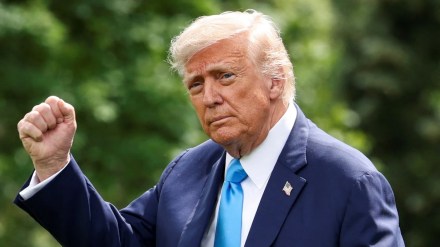US President Donald Trump on Friday abruptly cut off ongoing trade negotiations with Canada, citing the country’s digital services tax on US tech giants. He described the move as “a direct and blatant attack on our country” and vowed to impose new tariffs on Canadian goods within the next week.
“Based on this egregious Tax, we are hereby terminating ALL discussions on Trade with Canada, effective immediately,” Trump posted on Truth Social. “We will let Canada know the Tariff that they will be paying to do business with the United States of America within the next seven-day period.”
Speaking at the White House, Trump said talks would not resume “until they straighten out their act,” and added, “We hold such power over Canada.”
The announcement reverses the recent tone of cooperation between the two nations, especially following the G7 summit in mid-June, where Trump and Canadian Prime Minister Mark Carney had agreed to finalize a new economic pact within 30 days.
Canada’s digital services tax, set to take effect Monday, targets large tech companies like Amazon, Meta, Google, and Apple. The tax imposes a 3% levy on digital services revenue earned from Canadian users exceeding $20 million annually. The policy will be applied retroactively from 2022.
Though US stocks briefly dipped following Trump’s statement, the S&P 500 and Nasdaq still ended the week at record highs. However, the president’s unpredictable tariff decisions have rattled financial markets throughout the year and are beginning to affect consumer spending.
Canadian government responds
Prime Minister Carney’s office issued a measured response, stating: “The Canadian government will continue to engage in these complex negotiations with the United States in the best interests of Canadian workers and businesses.”
US Treasury Secretary Scott Bessent, who earlier on Friday had painted a positive picture of progress on several trade fronts, played down the rift with Canada. In an interview with CNBC, he said US Trade Representative Jamieson Greer would likely launch a Section 301 investigation into the Canadian tax, enabling proportional tariff retaliation estimated at $2 billion.
The US has previously prepared similar measures against European countries with digital taxes.
Trade deals on other fronts moving forward
Despite the fallout with Canada, Bessent highlighted progress elsewhere. He said the administration hopes to conclude trade agreements with up to 12 of 18 key partners by Labor Day, Sept. 1.
“We have countries approaching us with very good deals,” Bessent said on Fox Business Network. “If we can ink 10 or 12 of the important 18, there are another important 20 relationships, then I think we could have trade wrapped up by Labor Day.”
Trump echoed this optimism but left the door open for unpredictability. “I’d like to just send letters out to everybody: Congratulations. You’re paying 25%,” he said.
China deal tweaked to resume mineral exports
Bessent also confirmed that the US and China had resolved disputes over the export of rare earth minerals and magnets. These materials, crucial to industries ranging from defense to electronics, had been blocked by China as part of its retaliation against US tariffs.
“I am confident now that … as agreed, the magnets will flow,” Bessent said, noting that US companies with a history of receiving the materials would be prioritised. He added that once shipments resume, the US would begin sending withheld items to China as well.
China’s Commerce Ministry said it would process export approvals “in accordance with the law” but did not specifically mention rare earths.
Ongoing talks with India and Japan
Meanwhile, trade negotiations with India and Japan also continued on Friday. Japan’s government issued a statement noting that both sides are working toward an agreement “that benefits both Japan and the United States.”
With inputs from Reuters
